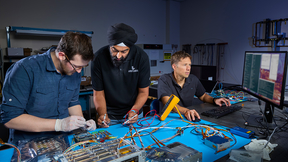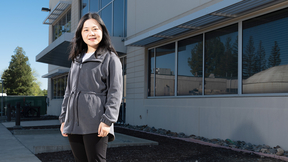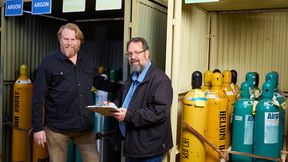LLNL researcher, business development executive capture technology transfer award from consortium
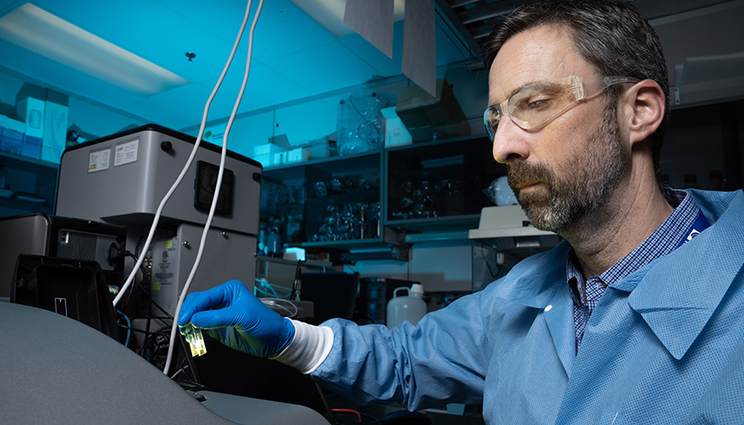 (Download Image)
(Download Image)
LLNL biologist Nicholas Fischer is analyzing the size of the nanolipoprotein particles (NLPs) by dynamic light scattering in preparation for their use in vaccine applications. Fischer and two former LLNL researchers are key developers of the NLP technology, which has won a Federal Laboratory Consortium award for technology transfer. Photo by Blaise Douros.
A Lawrence Livermore National Laboratory (LLNL) researcher and a colleague who helped him and his team commercialize their biomedical technology have garnered a national technology transfer award.
The award, from the Federal Laboratory Consortium (FLC), represents the 42nd technology transfer award that LLNL has won from the FLC since 1985.
LLNL biologist Nicholas Fischer, one of the co-inventors of the technology, and Yash Vaishnav, a business development executive in the Lab’s Innovation and Partnerships Office (IPO), will be honored during the FLC national meeting, April 9–11, in Dallas, Texas. This year marks the 50th anniversary of the FLC.
The FLC award recognizes a LLNL biomedical technology called nanolipoprotein particles (NLPs) that can deliver vaccines and drugs inside the cells of the human body. The advance was licensed to Ann Arbor, Michigan-based EVOQ Therapeutics in 2017.
EVOQ Therapeutics has been able to use the NLPs for lymph node-targeted delivery of specific antigens for autoimmune diseases such as type 1 diabetes, rheumatoid arthritis, celiac disease and others.
The biomedical company has developed a technology for autoimmune disease vaccines shown to be up to 30 times more effective at delivering antigens to the lymph nodes compared to antigens not using the NLP technology.
It is believed that people afflicted with autoimmune diseases may someday receive help through treatments using the NLPs from EVOQ Therapeutics and its collaborations with two major pharmaceutical companies and the Juvenile Diabetes Research Foundation.
Over the past three years, EVOQ Therapeutics has announced three major agreements with Gilead Sciences Inc., the Juvenile Diabetes Research Foundation and Amgen Inc. to work on the preclinical development of novel medicines to combat autoimmune diseases. Part of the LLNL-developed NLP technology could be used as the vaccine delivery platform.
In early 2023, Foster City, California-based Gilead Sciences and EVOQ announced they would collaborate on the preclinical development of vaccines to treat rheumatoid arthritis and lupus. The EVOQ technology is designed to enable lymph node-targeted delivery of disease-specific antigens for autoimmune diseases.
Under its agreement with Gilead Sciences, EVOQ could receive up to $658.4 million in upfront, option exercise and other payments, in addition to royalties on product sales.
In its pact with Amgen, EVOQ Therapeutics granted the Thousand Oaks California-based firm exclusive rights to selected autoimmune programs and received an upfront payment and other payments potentially totaling more than $240 million, along with royalties on sales of resulting therapies. Amgen is working to develop vaccines for three autoimmune diseases.
“The impact of LLNL’s technologies has been tremendous and we appreciate the opportunity to work alongside such a talented and dedicated organization,” said David Giljohann, EVOQ’s chief executive officer. “Our partnership with LLNL has enabled us to tackle complex challenges and may help us bring innovative solutions to patients with autoimmune diseases.”
LLNL’s Vaishnav, who negotiated the 2017 license agreement with EVOQ Therapeutics and who continues to manage the development of the intellectual property portfolio in this area as well as industry partnerships, said the intellectual property developed with taxpayer funding by LLNL scientists is now moving toward preclinical studies for developing vaccines for several major autoimmune diseases.
“This is one of the first biomedical technologies in the areas of vaccines and therapeutics from the Department of Energy complex to enter preclinical trials,” Vaishnav said.
Developed by LLNL biomedical researchers over a decade starting in 2005, NLPs are water-soluble molecules that are five to 30 billionths of a meter in size and resemble HDL (high-density lipoprotein) particles, which are the human body’s good cholesterol. The NLPs were developed with about $7.4 million of Laboratory Directed Research and Development funds, which is internal LLNL research money.
In addition to Fischer, the other LLNL inventors on the licensed patents are Craig Blanchette, a biophysicist now at Switch Therapeutics, and former LLNL bioorganic chemist Paul Hoeprich, who has retired.
Started in 1974, the FLC is a congressionally chartered, nationwide network that helps accelerate the transfer of technologies from federal labs into the marketplace. It is composed of more than 300 federal labs, agencies and research centers. Hannah Farquar, a Lab IPO business development executive, is LLNL’s FLC representative.
Contact
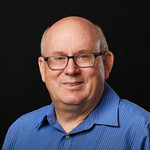 Stephen Wampler
Stephen Wampler
[email protected]
(925) 423-3107
Related Links
Lab Innovation and Partnerships OfficeFederal Laboratory Consortium
Tags
Physical and Life SciencesBiosciences and Biotechnology
Featured Articles
